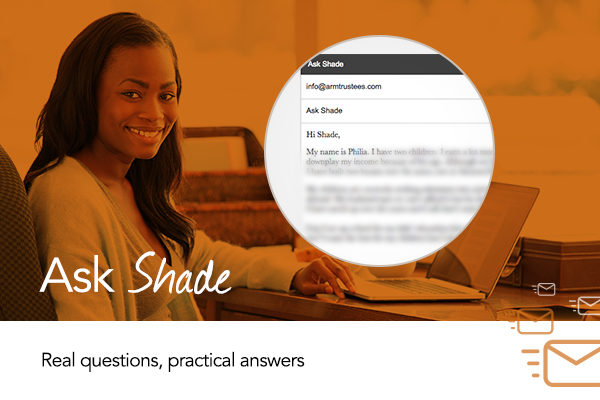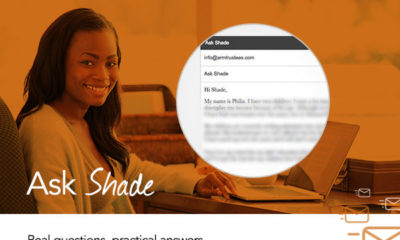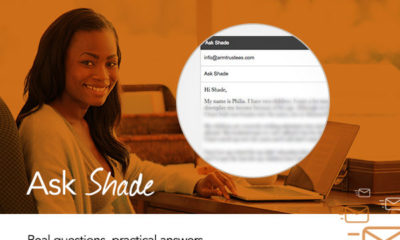Features
Ask Shade About Trusts: He Doesn’t Know It’s Not ‘Our’ House
 ‘I have a house, me and my husband are living in currently. It was given to me by my father and I managed to convince my husband that we should live here in town rather than a far place from both our work. I lied to my husband that it was a gift from my dad to the both of us, but it’s just my name there. I did this because he was refusing to stay in the house. He wanted us to rent a house far away and there was no point wasting money on rent and petrol (for travel to and from work, plus it would be so stressful going to and from work as we only had one car at the time) Should I put the house in a trust for my future kids?’ – StaciB
‘I have a house, me and my husband are living in currently. It was given to me by my father and I managed to convince my husband that we should live here in town rather than a far place from both our work. I lied to my husband that it was a gift from my dad to the both of us, but it’s just my name there. I did this because he was refusing to stay in the house. He wanted us to rent a house far away and there was no point wasting money on rent and petrol (for travel to and from work, plus it would be so stressful going to and from work as we only had one car at the time) Should I put the house in a trust for my future kids?’ – StaciB
**
Hi StaciB,
You can and should set up a Trust transferring the ownership of the house to the Trust for the specific purpose of later transferring the house to your future children.
A Trust can be defined as any arrangement whereby assets (such as your house) are transferred by a Settlor (creator of the Trust) into a Trust with the intention that the Trust is to be administered by the Trustee for the benefit of others (which in this case would likely comprise you as Settlor in your lifetime, and your children as beneficiaries after your demise).
In creating a Trust, it is imperative that the proposed Trust assets are legally transferred to the Trustee and effectively such assets are thereafter considered trust assets. The trust assets do not form part of the trustee’s own proprietary assets. The Trust Creation document which is known as the Trust Deed would have specified your objectives of transferring the house to your children in future.
The advantage of having a Trust is that you would no longer be reflected as the legal owner of the property. The confidentiality of a Trust also means that it is unlikely that any other person would know about the Trust or its purpose. The Trustee which would hold the house for the benefit of your children is duty bound to transfer the house to your children in accordance with your instructions. The Trust may also be structured to be quite flexible such that you may also be able to transfer or sell the house through the Trust if you decide not to proceed with the transfer to your future children. The drawback of a Trust is that there might be expenses relating to the initial transfer of title to the Trustee and the Trustee would also earn recurrent fees for holding or managing the Assets.
The specific type of Trust that would suit your objective is a Single Asset Trust. The Trust Creation document which is known as the Trust Deed would have specified your objectives of transferring the house to your children in future. The Trust Deed may also state if the Trust is revocable (which means you may terminate the Trust) or not and also specify the powers of the Trustee in relation to the house.
To ‘protect’ your marriage, you can choose to carry your husband along in the Trust process. Perhaps discuss the advantages of securing the house for your children with him and get his buy-in on your decision to set up a Trust or even jointly set up the Trust. That way, he would not wrongly assume that he shares in the ownership of the house and your marriage will be secure in the knowledge that the house ultimately belongs to your children.
In the process of setting up your Trust, you will be further advised by Trust Experts with respect to costs and process for transferring the property to the Trust.





















